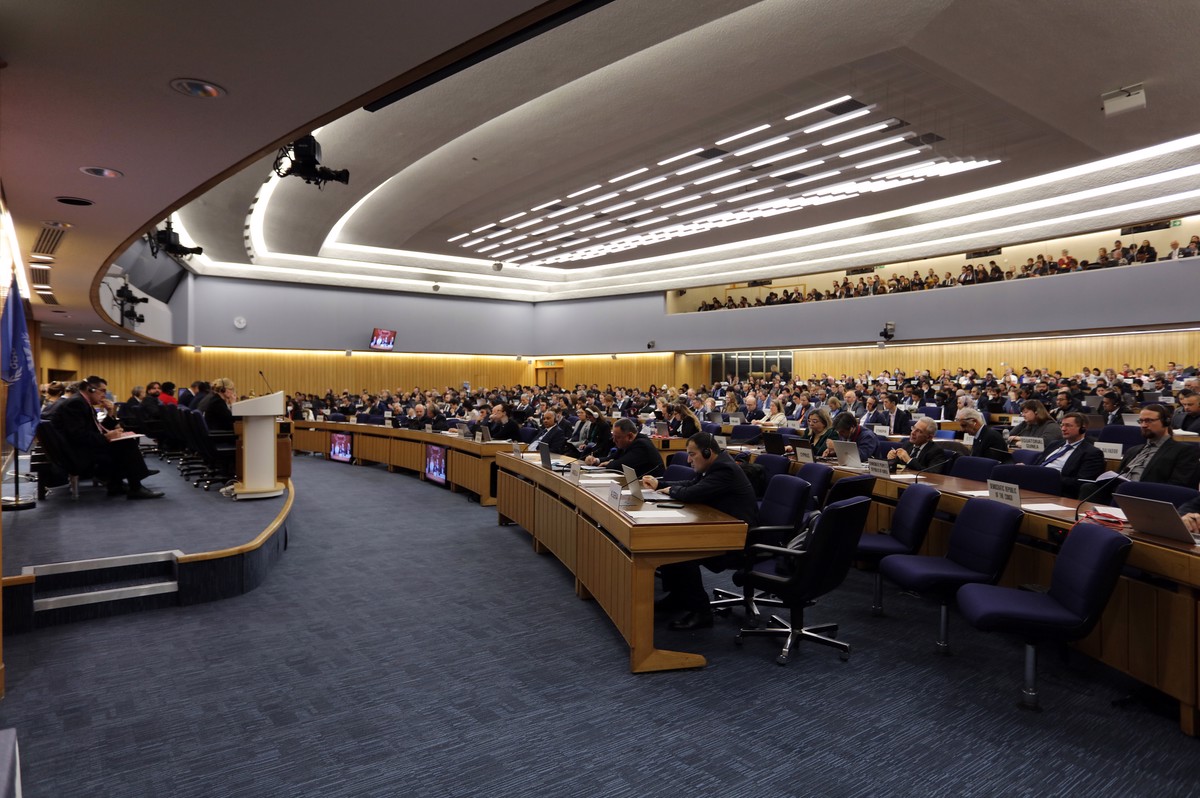Two-thirds of IMO members support net-zero 2050 target – DNV
About two-thirds of International Maritime Organisation (IMO) member states have expressed support to revise the greenhouse gas (GHG) target at the IMO’s GHG strategy meeting next year, DNV says.
 PHOTO: IMO's MEPC 79th meeting was held between 12-16 December. IMO
PHOTO: IMO's MEPC 79th meeting was held between 12-16 December. IMO
The IMO’s initial GHG strategy sets out a target to curb shipping emissions by 50% by 2050. The maritime regulatory body is expected to revise this target at the IMO’s Marine Environment Protection Committee's (MEPC) 80th meeting scheduled for July next year.
However, some member states are still reluctant to make changes to IMO’s current GHG target.
Around a quarter of IMO member states prefer to adhere to the current GHG target, DNV director Eirik Nyhus said at a webinar hosted by the classification society today. Nyhus said some members think that the industry lacks the capability and capacity to ensure a sufficient availability of green fuels and technologies to achieve a net-zero target.
University Maritime Advisory Services (UMAS) noted that about 10 developing nations at the IMO declined to support a net-zero emission target for 2050, citing concerns about transportation costs.
On the contrary, member states build some consensus on mid-and long-term market measures such as levy or rebate systems for shipping decarbonisation during last week’s MEPC 79th meeting, Nyhus added.
Initial discussions on a levy or rebate system could be kickstarted at MEPC 80, Nyhus said. However, he thinks that it would take several years for these measures to get formally adopted at IMO.
Also during last week's MEPC 79, the IMO's proposed green corridors programme faced significant opposition. Several member states concurred that green shipping corridors can been extremely helpful, but simultaneously urged the IMO to steer clear of green corridor programmes because these are better served bilateral agreements between countries or ports.
Nyhus said MEPC 80 will likely consider how biofuels can be included in the IMO’s Data Collection System (DCS) and Carbon Intensity Indicator (CII) ratings. It could be similar to the DCS for bunker fuel oil, which requires ships above 5,000 gross mt to submit annual reports on fuel oil consumed, distance and hours traveled.
There has also been traction since MEPC 78 for setting up a framework for onboard carbon capture and storage (CCS) systems, Nyhus added. Further discussion has been deferred to MEPC 80. He expects there to be an outcome from these discussions by 2024. But he simultaneously cautioned the IMO against granting big incentives for ships that have CCS systems onboard.
The IMO will announce a revised GHG strategy that is both ambitious and fair at the next MEPC 80, the IMO’s secretary-general Kitack Lim said during his closing remarks last week.
By Nithin Chandran
Please get in touch with comments or additional info to news@engine.online





